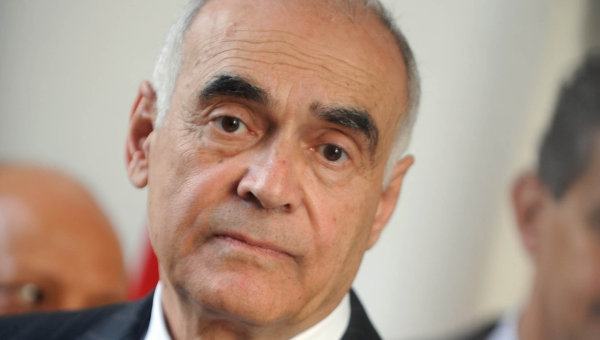CAIRO: The new Cairo Financial and Tourist Centre (CFTC) in close proximity to the Citadel and Islamic Cairo – whose construction has been halted by Cairo’s Governor, Abdel-Azim Wazir – has become something of a lightning rod in the Egyptian debate over modernization vs. tradition.
In Egypt, as elsewhere around the world, the country’s economic growth in recent years is seen as a mixed blessing. Alongside benefits such as greater employment, higher salaries, and better facilities, comes what many perceive to be a threat to local culture and traditions.
The same shops, fast-food restaurants, and mega-malls that are now almost uniform around the towns and high streets of the US and Europe are – in light of the country’s impressive economic performance – becoming commonplace in Egypt’s big cities too.
Occupying a plot of 260,000 square meters, the half-built CFTC is the brainchild of Mohamed Nosseir, chairman of Alkan Group. Upon completion, the center should comprise a five-star hotel, cinema entertainment center, office and residential space.
Nosseir expects it to be a magnet for international investment, and create thousands of jobs in an area that was once a rock quarry and a garbage dump. “That is my dream, Nosseir said in an interview with CNN. “It will be the working platform or station for.businesses to attract and let people come in.
Critics, however, argue that it comes at a cultural price greater than any expected economic gain. Antiquities in Islamic Cairo – a Unesco world heritage site – they say will be damaged by the vibrations from construction work.
And within a stone’s throw from the Citadel, many, not least Zahi Hawass, secretary general of the Supreme Council of Antiquities (SCA), feel the development is an unwelcome eyesore.
It was Hawass who convinced the governor of Cairo to shut down construction work on the project in July 2006 to allow a Unesco team to inspect the site. The resulting report stated that the center would have a “significant adverse impact on the visual integrity of the Citadel.
The report also recommended that the height of the complex should not exceed that of the Citadel s watchtowers; the center should be fragmented into a number of different parts to free up space; and the building should be constructed with materials that blend in with the surrounding desert.
Furthermore, it turned out that, even though he had received planning permission from the prime minister, the Cairo governorate and various other bodies, Nosseir required Hawass’ approval to begin building in the first place.
“If Mr Nosseir had come from the beginning to get my opinion for establishing this project in this place, Hawass reportedly said, “I will say no, and no. And no.
Nosseir has changed the project’s design so as not to obscure views of the Citadel, with several of the buildings now being built from the underground, and the rooftops leveling with the street.
Nevertheless, Hawass has initiated a second Unesco investigation into the construction site, the report of which is due to be released in the next couple of weeks. Minister of Culture Farouk Hosni, has referred to this as the “verdict on the fate of the site.
In recent weeks, however, the SCA has adopted a more diplomatic approach toward the CFTC. The director of Hawass’ office, Ahmed Ebeid, told Daily News Egypt that the SCA was “not for or against the project but that Egypt’s cultural and historical landmarks were their main priority.
“Dr Hawass knows how big this [would be] for the economy, but our cultural heritage has to be protected first.
When the second Unesco report is released, Ebeid said, it will be reviewed by the SCA’s Permanent Committee, which is made up of about 70 experts, and a decision will then be made as to how to proceed.
No one from Alkan was available for comment by press time.

